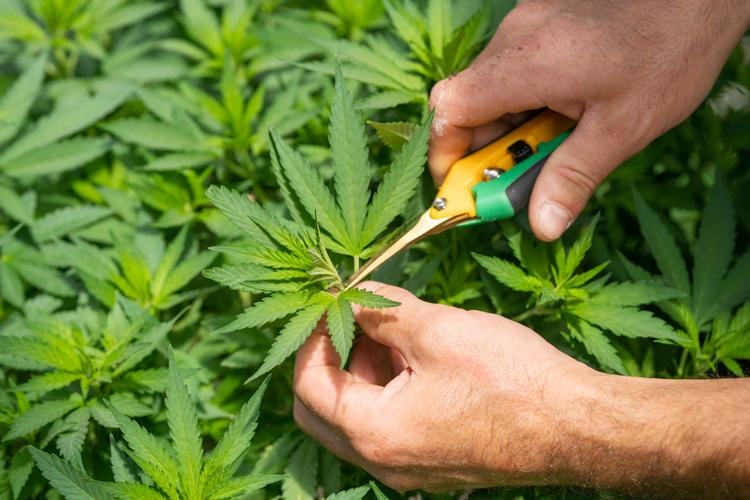Going Greener

With Governor Kemp’s signature today, Georgia House Bill 336 (“HB 336”) implements much needed changes to the state’s laws governing hemp growing and processing. 2020 was mired by commercial and regulatory growing pains for the state’s 140+ hemp growers and hemp processors, so HB 336 now clears the runway for smoother operations going forward. Hopefully, with more lax regulations and less severe penalties, the state’s hemp growers and processors will be more certain about forecasting their budgets and cash flow for 2021 and beyond.
Cheaper Processor Permit Renewals
HB 336 changes course on the state’s previous trend and reduces the cost of renewing a hemp processor permit. Instead of renewals at an annual fee of $50,000, each annual permit renewal fee is now $25,000.
Easing the Burden for Grower Applicants
HB 336 also reduces the burden on business entities applying for a license to grow hemp. Prior to HB 336, the state’s law required applicants applying for a hemp growing license to be considered a qualified agricultural producer. This requirement included proof of at least $5,000 in annual sales of agricultural products or services. Limiting applicants to only qualified agricultural producers was a full bar on first time farmers from entry to hemp growing, as well as creating logistical problems for newly formed business entities. Now, HB 336 drops the requirement that applicants be qualified agricultural producers, opening the hemp growing market to new entrants previously barred.
The original Georgia Hemp Farming Act (the “Original Act”) also tied the continued validity of growers’ licenses to having an agreement in place with a permitted hemp processor. The unexpectedly large supply of hemp in 2019 and 2020 far exceeded hemp processors’ capacity and rendered it difficult for some hemp growers to obtain agreements with a processor, consequently destroying their ability to obtain or renew their license. Now, HB 336 removes the requirement that hemp growers have an agreement in place with a permitted hemp processor.
In addition to broadening the potential supply of hemp grower licenses, this also provides legal clarity for hemp growers cultivating hemp to sell seeds or clones to other hemp growers. We expect this segment of the market to receive more attention in future state regulations.
Revamped Processor Bond Requirements
The Original Act required that any person applying for a hemp processor permit to provide the Commissioner of the Georgia Department of Agriculture a security bond of $100,000 to ensure payment to hemp growers for hemp and to ensure the hemp processors compliance with the Original Act and other regulations. Now, HB 336 increases the required bond amount to 2% of hemp purchased from licensed hemp growers annually. This bond requirement has a bottom limit of no less than $300,000 and an upper limit of no more than $1,000,000. HB 336 also provides for a more detailed complaint process for aggrieved hemp growers or the public to make claims against a hemp processor’s bond.
Alignment with the USDA Final Rule
Most importantly, HB 336 changes the language in the Original Act to reflect the USDA Final Rule on hemp. HB 336 uses “disposed of” instead of “destroyed” and “lot” instead of “crop”. While this seems like a change only an attorney could love, it creates significant benefits for hemp growers. First, the USDA Final Rule allows additional remediation and disposal options for “hot” hemp testing over the 0.3% delta-9 THC limit instead of more rigid destruction requirements in the Interim Final Rule. Additionally, changing the ambiguous term “crop” to the more clearly defined term “lot” may limit the amount of hemp that must be remediated or disposed of after a “hot” test. Both changes have the potential to limit hemp growers’ financial losses due to a “hot” hemp test sample.
Bottom Line
The enactment of HB 336 has changed the legal landscape for hemp growers and hemp processors for the better. The hemp market is more open to competition and certainty regarding operations. Businesses now have a clear picture regarding costs and potential penalties, including alternative disposition of “hot” hemp tests. Additionally, businesses can more easily apply for hemp growing licenses and can operate without worry that they could lose their license due to hemp processor limitations. Finally, the stricter bond requirements in HB 336 for hemp processors has ensured that monetary remedies regarding disputes with hemp growers and the public are more streamlined and efficient.
If you are a current hemp grower or hemp processor within the state or are looking to setup a business entity to grow or process hemp within the state, contact Conway Eader today for a free consultation on how we can help you with your business goals.
